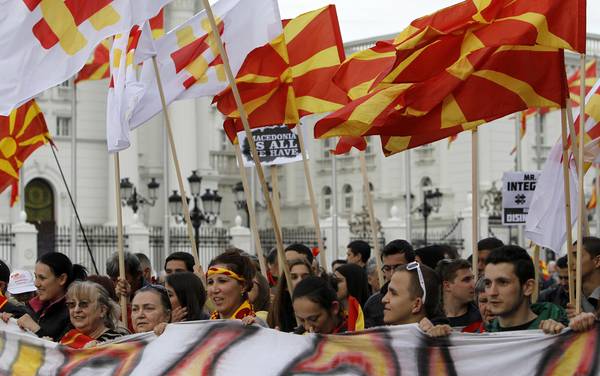European Policy Institute in Skopje,tired of the EU rhetoric
Scholar: Macedonia is likely to slid into other dimensions
06 April, 17:09Aleksandar Jovanovski, researcher at the European Policy Institute in Skopje, does not mince words, speaking in Rome at the conference ''The Western Balkans in the European Union', organized by the Ministry of Foreign Affairs and Istituto Affari Internazionali (IAI). ''The Italian Presidency of the Berlin process - Jovanovski told ANSA New Europe on the sidelines - comes at a crucial time'. In July, ''at the summit in Trieste, Italy will have the opportunity to send a positive message to the countries of the Western Balkans: it's time to revitalize regional cooperation and EU enlargement''. Jovanovski's opinion is shared by many experts on the opposite shore of the Adriatic Sea. ''The Western Balkans expect something more from the EU. It 's time to change the negative messages and regain a positive attitude''. The EU asks the Western Balkans to move forward both in terms of regional cooperation and respect for democratic rules, Undersecretary of State of Foreign Affairs and International Cooperation underlined. This is a highly sensitive issue in this long political in Macedonia. Four months after early elections on 11 December last year, actually, a new government has not yet been formed''.
The EU's continued pressure - young researcher from Skopje explained - have failed to enforce the principle of the parliamentary majority to form the government by the President of the Republic, Gjorgje Ivanov, who refused to entrust this task to Social Democratic opposition leader, Zoran Zaev. A refusal related to Zaev's achievement of a coalition agreement with the parties of the Albanian minority (which, however, is expecting larger autonomy in return). The President's refusal reflects the opinion of the majority of the Macedonians, who took to the streets several times in protest against the demands of the Albanians (who represent 25% of the population) and in support of national unity. According to Jovanovski, it's necessary to remain vigilant ''about the advance of populism and nationalism in our country''. For this reason, he noted, it is important to remain under the EU's umbrella. ''Other non-EU actors are gaining ground'' in the region. First of all, Turkey, ''the first investor in Macedonia ''. An this is also happening - researcher remarked - in neighbouring Bosnia and Herzegovina. ''Without a consolidation of institutions and a return to democracy in the country, Macedonia could slid into other dimensions''.(ANSA).














